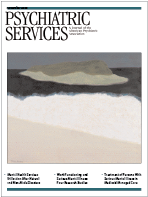Moral Development, Self, and Identity
The cognitive study of moral psychology traces the origins of this field to Jean Piaget, but the inaugural figure in the field is Lawrence Kohlberg. The so-called cognitive revolution arose in reaction to the sterile and limited dominance of behaviorism, which used the parallel-processing computer as a model of the mind. Kohlberg's work in the 1970s produced a powerful theory based on the notion that moral development is a process in which rational choice replaces fear and group morality as the source of moral behavior.
But Kohlberg could not speak to the question of why people behave in ways that are at odds with their stated moral beliefs, and the field was in danger of stagnation. Enter Augusto Blasi, who, in seminal papers in the early 1980s, argued that moral behavior accorded with moral precepts only if the agentic self was identified with those precepts: If being moral were not a vital part of my sense of self, I would not behave morally despite my rational grasp of what constitutes moral behavior at any given moment.
Moral Development, Self, and Identity is a Festschrift honoring Blasi's achievement and represents the current state of the field. In 14 essays, including one by Blasi, scholars use, extend, and confront both the honoree and Kohlberg. It is a well-written compilation that will be accessible to any reader who is willing to invest modest effort. In exchange, the reader will find a number of papers that explore, in a theoretical and empiric fashion, the development and functioning of morality and the moral self. The reader will also discover a personal, moving, and—yes—moral book, which is rare in an academic tome.
These authors care about their field in a manner that goes beyond publication and tenure. The book is not just another example of academic overspecialization. In the closing essay Blasi is explicit in his belief that moral judgment can apply only to choices that are rationally made. He and his fellow authors very much want to believe in moral accountability. To engage with a philosophical literature that explores the ontogeny of moral beliefs, a psychoanalytic literature that explores unconscious motivations, a neuropsychological literature that looks at implicit and limbic influences on behavior or an evolutionary view of altruism, to name a few examples, would risk undermining their entire project. This reality is unfortunate, because the book charts fascinating ground that deserves to be integrated into the larger study of the mind.
A story is told of violinist Itzhak Perlman, who was beginning a concerto when one of the strings on his instrument broke. Perlman finished the piece nonetheless, just to see what could be done with less. In a similar fashion, Moral Development, Self, and Identity explores what can be said about moral development and functioning from a limited perspective. The answer: Quite a lot, much of it very interesting; but it is left to the reader to supply the sound of the missing strings.
Dr. Kay is affiliated with the University of Toronto in Canada.



